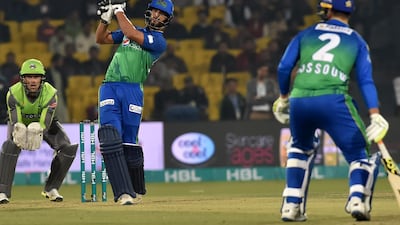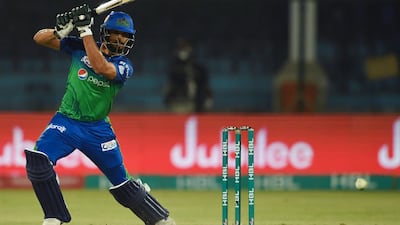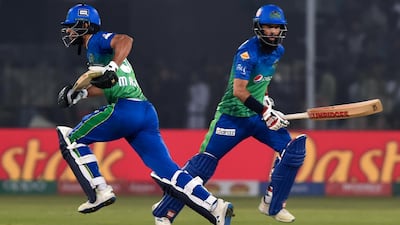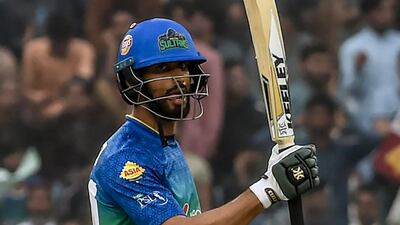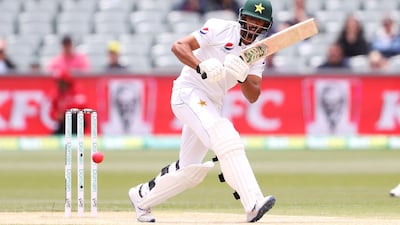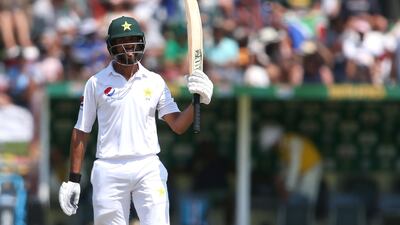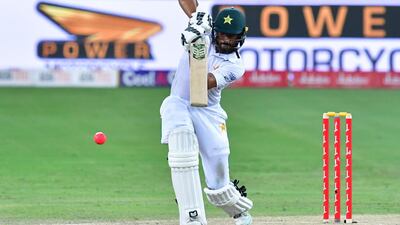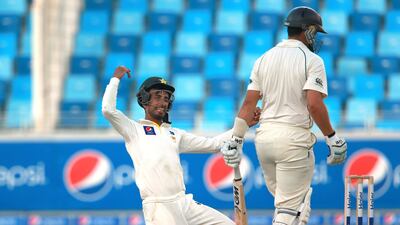When Andy Flower ended a highly successful, if occasionally stormy, 12-year term with English cricket last year, his next destination might have surprised many.
The Abu Dhabi T10 does not seem an obvious fit for a coach who had helped England’s rise to No 1 in Test cricket, and who had spent the previous six years in mentor and development roles.
Despite its popularity in its three season in the UAE so far, 10-over cricket remains beyond the pale for some cricket purists – a group to which it might be easy to ascribe Flower.
The former Zimbabwe player is excited to have the chance to explore franchise cricket in the coming years, and has already locked down roles with teams in Pakistan, India and the Caribbean.
But he says the T10 calling was a surprise even to him. Out of the blue, his agent contacted him, said there was a head coach position going with one of the teams, and asked if he would be interested.
Flower said yes, and was on a flight to Dubai for the draft that evening, to try and assemble a squad in a format he had never seen played, let alone experienced himself.
"I have a couple of good statistician friends that I asked a couple of questions of, and they fired me back some information that was useful," Flower told The National.
“Even though it was only the third year of T10, there were some interesting little stats.
“I am not going to divulge any of our secrets, but even from two tournaments there was some interesting stuff.”
No wonder he wants to keep the secrets to himself. Two tournaments in to his grand tour of franchise cricket, it already seems as though he has it cracked.
His Maratha Arabians were convincing winners of the 2019 T10, while Multan Sultans are the champions-elect in the Pakistan Super League.
Multan was Flower's next port of call after the T10. With the PSL currently suspended because of the coronavirus pandemic with its play-off series pending, his team have been clearly the outstanding side in it.
“It is a lucky start, to be quite frank. The sample size is small,” Flower said of his new beginnings as a franchise-cricket coaching guru.
“Getting Chris Lynn in the T10, and him coming off, was a huge factor.
"Having Lynn with the bat and Lasith Malinga with the ball, that is not a bad start. That is why the draft is so important.
“And at Multan Sultans, we had quite an old team and I was concerned about our fielding, but that held together really well.
“We had a couple of good things going for us. We had tons of experience, an excellent captain in Shan Masood, and we had two leg-spinners at least playing for us.”
Maybe luck has played a role. After all, he did have just one practice session with his side before the T10. And it just so happened that Lynn, as he said, was in red-hot form for that competition.
But there is clearly far more to it than that. Flower and Nathan Leamon, the analyst who is a trusted part of his support team, have a data-driven strategy designed to find an edge.
“I don’t think everyone is broadly following the same ideas,” Flower said of his commitment to analysis, before adding, “I certainly wouldn’t say that I’m ahead of anyone in particular.”
He points to the influence of Leamon and Talha Ejaz, Multan’s analysts, on their PSL success, as well as the captain Masood, and even the team’s owners.
“[Masood] had a natural bent towards analysis, and that is part of the reason the owners, Ali Tareen and Alamgir Tareen, were very keen to get Shan as captain, even though he might not be a natural T20 player,” Flower said.
“They wanted us to go into this tournament with a new and innovative way of attacking T20 cricket.
“That was heavily analysis driven, and that is why they wanted Shan as captain. I think they proved wise in their choice.
“He has the capacity to deal with a little extra information before games, during games, and after games. That was important.”
That information was often relayed to Masood from Flower and Co on the bench, in real time.
Flower was impressed with the way his captain processed all the information – even if he did not always go along with it.
“We took some pretty big decisions, and there were times when I took decisions where he probably didn’t agree, but he let me make them,” Masood said.
“When those decisions didn’t come off, he told me it was a learning curve.
“As a person it was something that helped me grow a lot, and is something that will always be responsible for my development.”
Flower is glad to hear that Masood felt emboldened by his time in charge of Multan, having initially found the prospect intimidating.
“Once of the tricks is blending that sort of analysis with an understanding that we are dealing with 11 human beings, and having empathy with them in a high pressure situation,” Flower said.
“It means using the information as wisely as possible, but absolutely placing the people you are working with at the centre of discussions, analysis and reviews.
“There is no way you can just input statistical information into a sports team, and out pops a result.”












